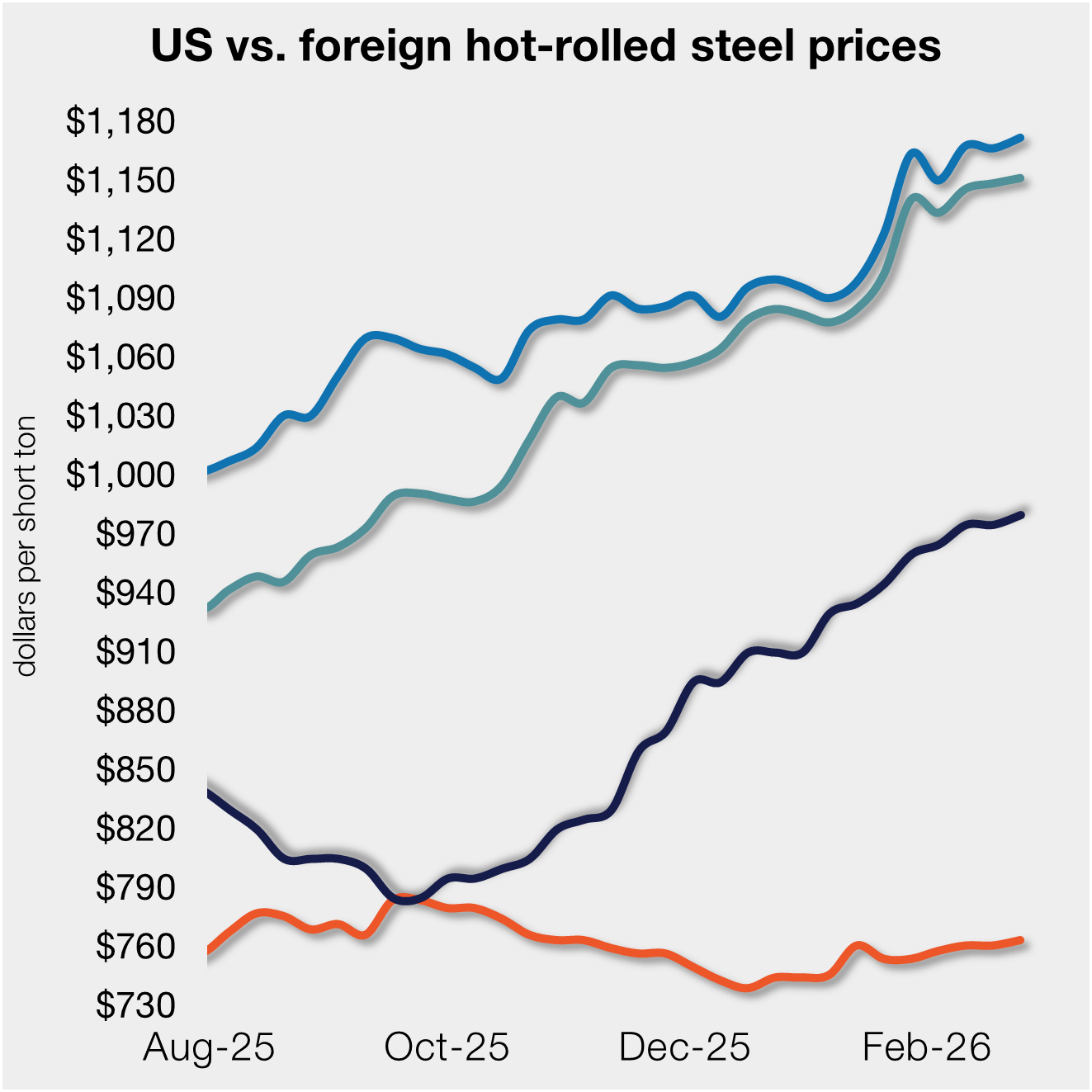Prices

December 17, 2024
Pig iron tags slip on soft ferrous raw materials demand
Written by Stephen Miller
The prices being paid by US-based buyers have continued to decline as ferrous raw material demand across the globe remains weak. In the US, prices for pig iron held firm during the first half of 2024. Mills here had to rely on Brazilian production to meet the majority of their needs. Even as the price of scrap continued its downward trajectory during the year, pig iron prices resisted the decline.
This started to change as pig iron prices fell dramatically in South Asia and other Far Eastern countries due to Russian sanctions and an oversupplied steel market courtesy of Chinese exports.
Q4 Indian offers
Starting in Q4, US steelmakers began receiving offers of Indian pig iron at prices lower than Brazilian ones. This has led to a decrease in pricing from $475 per metric ton (mt) CFR to $460/mt in November and now $445/mt in December for January shipment. So far, SMU has only confirmed one cargo at this price from Brazil, but Indian material may have also been sourced.
There have been reports that India has been able to import pig iron from Russia at a price of $340/mt delivered. This price has raised a few eyebrows in the trade.
Let’s see: India selling pig iron to the US at $445/mt but buying from Russia at $340/mt, or about $100/mt less than the price they are selling?? Does this make sense?
As such, some players are suspicious of this. Is all the Indian material the US is importing being produced in India? So far, it seems so since these sales have been characterized as high phosphorus stock. Russian pig iron is low phosphorus.
US trader
SMU spoke with a US-based trader about his view of the current market. He said his company has received tentative offers from international traders of material shipped from India, which would contain Russian produced pig iron. He did not accept this offer since Russian material is sanctioned by the US. But he wondered if other buyers would.
“A lot of pig iron looks the same,” he commented.
He went on to say that over the last several years US foundries and steelmakers have sought to use less pig iron in their processes due to price and scarcity. The was partially caused by the Covid-19 pandemic and certainly by the Russo-Ukraine conflict.
The US trader added: ”Unless HRC recovers to $750-800 per net ton in the US, pig iron may be stuck at these recent levels.”
Brazil trader
We also heard from a trader in Brazil. He confirmed the recent sale at $420/mt FOB Rio ($445/mt CFR US Port). He thought the reason for the lower pricing was due to a weak scrap and steel market in the US rather than pressure from Indian sources.
The “Indian offer is not that big to move the market,” he said.
The Brazilian trader added that producers in Brazil are not expecting improvement for the next two months when they feel prices will improve. In the meantime, production in Brazil will suffer from expensive iron ore and charcoal prices.







